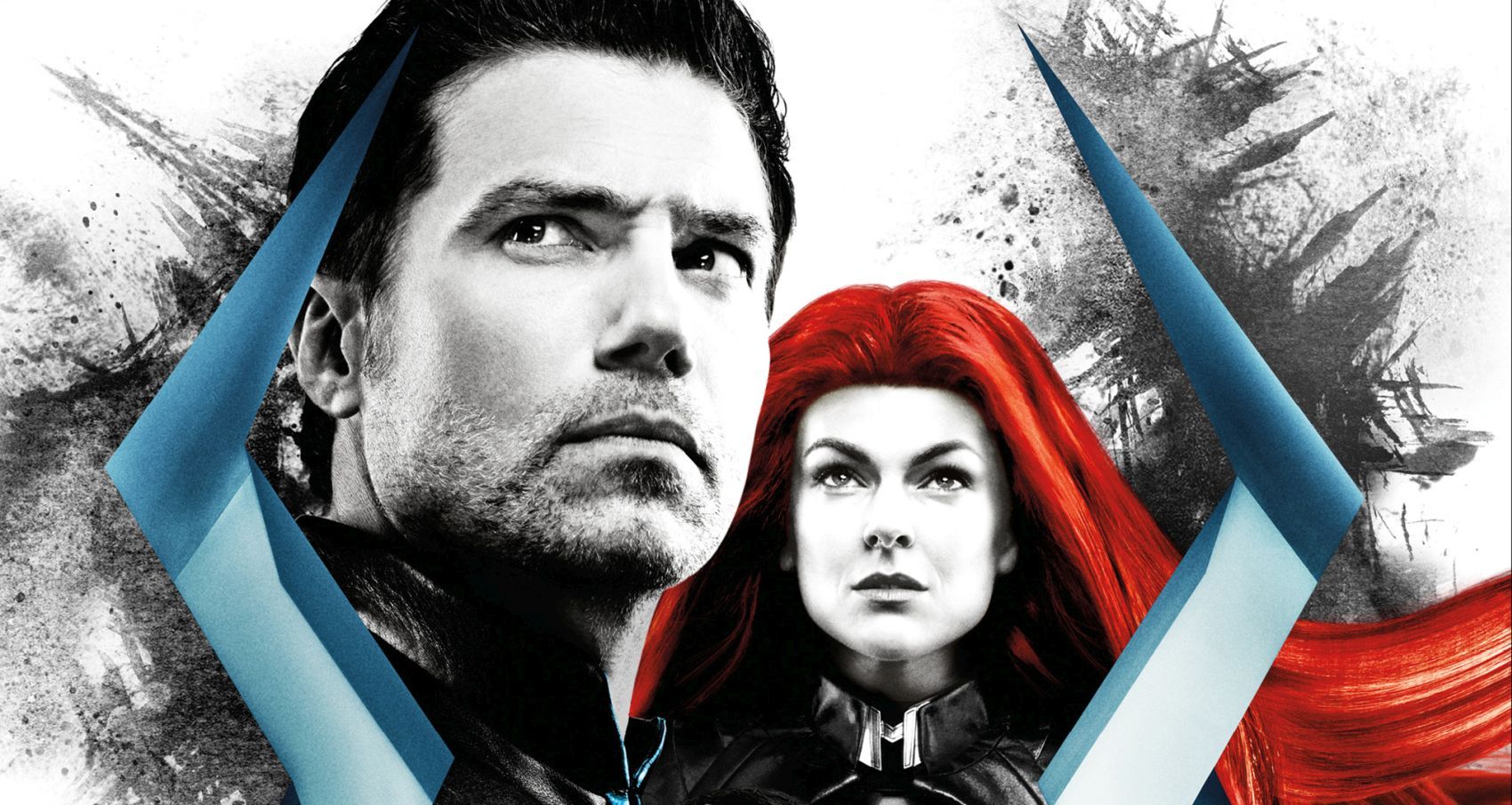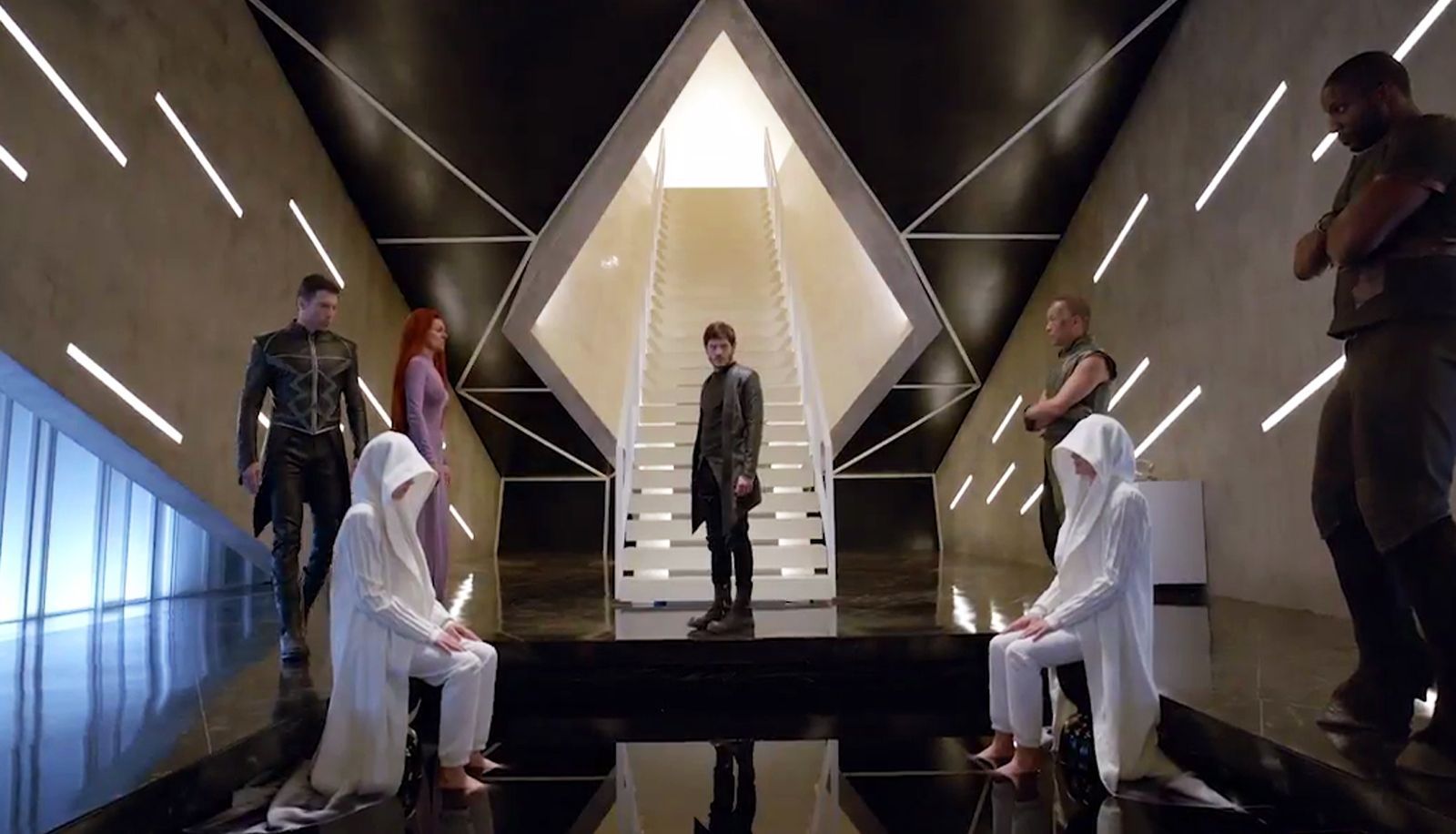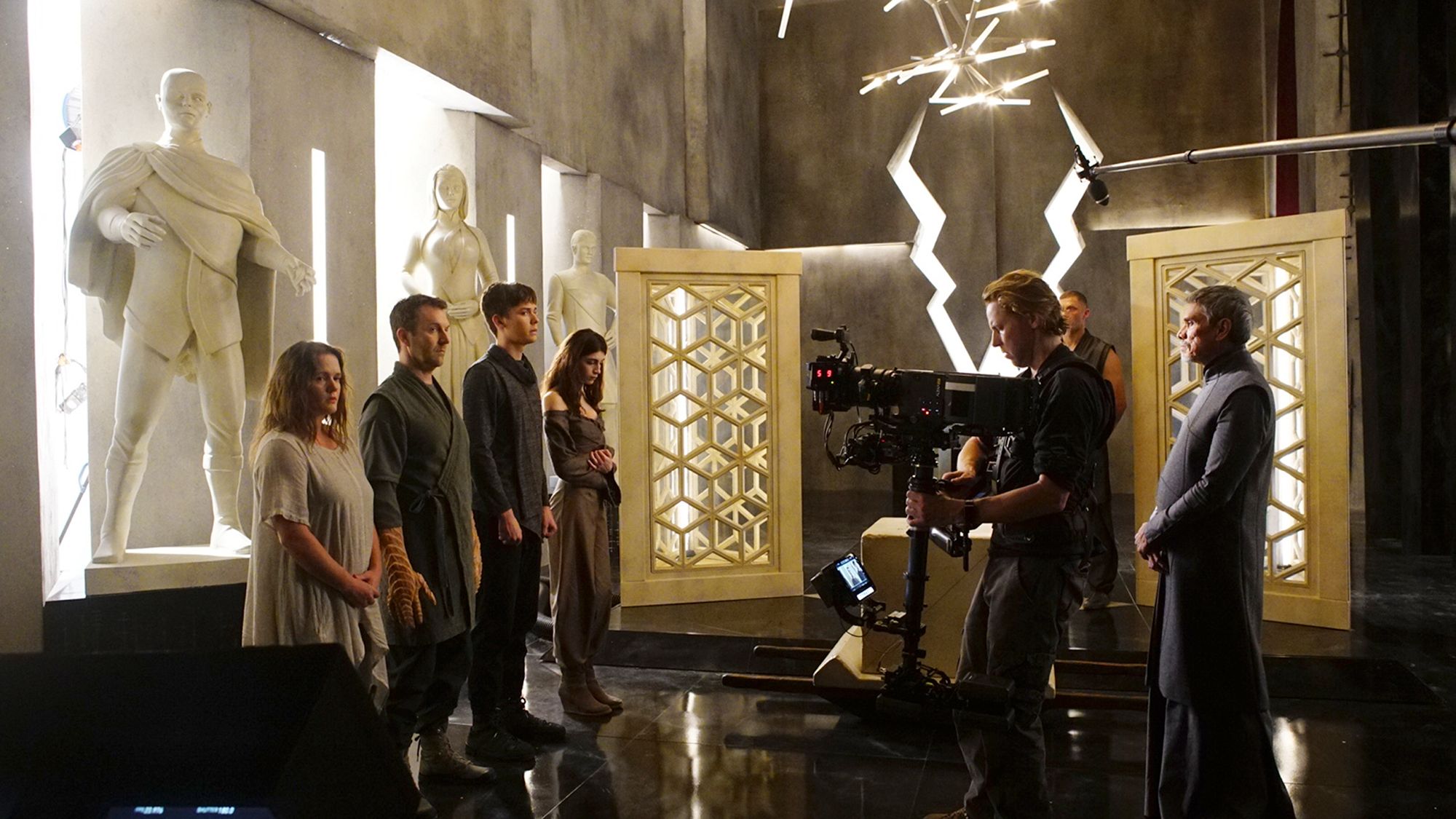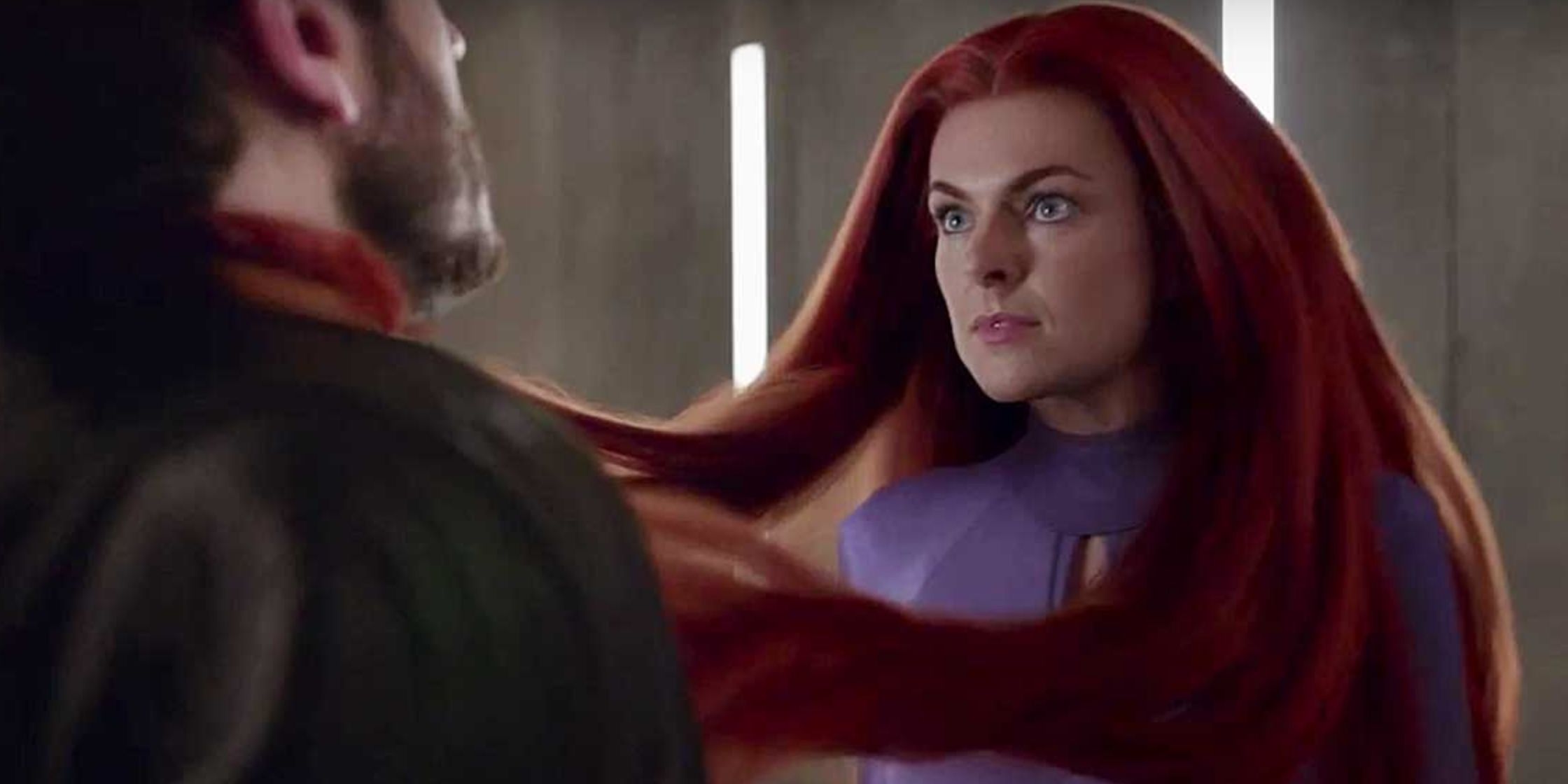Warning! SPOILERS ahead for Marvel's Inhumans
-
Marvel's Inhumans was once slated to be part of Marvel Studios' Phase 3, earmarked as a feature film franchise to join the blockbuster ranks of The Avengers and Guardians of the Galaxy. Somewhere along the way, Inhumans was repurposed and sent to Marvel Television to join Marvel's Agents of S.H.I.E.L.D. on ABC. However, there was still a grand plan attached to "eventicize" Inhumans: Before its 8-episode series' network premiere on September 29th, the first two episodes would be shot with IMAX cameras to premiere theatrically on September 1st. Inhumans would bridge both mediums and presumably get the best of each: a brief theatrical run on the biggest format available and a television series that would join Marvel's successful line up of S.H.I.E.L.D. on ABC and The Defenders series on Netflix.
By the time Labor Day weekend concludes, Marvel's Inhumans' 75 minute pilot, dubbed 'The First Chapter,' is projected to gross $2-million on 393 IMAX screens. It's a modest haul, to say the least, and one that doesn't exactly justify the trouble that went into releasing Inhumans in the prestigious IMAX format. The reviews have not been especially kind, largely echoing Screen Rant's critique that Inhumans' first two episodes are "listless and uninspired." With the results of Inhumans amounting to hundreds of empty IMAX theater seats and a withering response from critics and fans, it begs the question: What went wrong with Inhumans?
IMAX: BIGGER DOESN'T MAKE IT BETTER
With the middling returns both financially and critically, one has to seriously question Marvel's decision to launch a television show theatrically in IMAX. IMAX CEO Greg Foster outlined his company's reasons to launch this project with Marvel in an interview with Collider, but when viewing the finished product, there doesn't seem to be any real benefit to it beyond sheer novelty. "IMAX" was the primary marketing strategy for Inhumans, one of their oldest properties dating back to Stan Lee and Jack Kirby's Fantastic Four in the 1960s. Rather than Marvel adequately explaining or enticing fans with the concept of Inhumans, Marvel pushed IMAX more than they attempted to make the characters in Inhumans and their drama compelling with their poorly received trailers. Perhaps Marvel assumed fans were already familiar with the concept thanks to Inhumans being a focal point of Agents of S.H.I.E.L.D. for the last few years, but this new series is about the Royal Family, a very different and much stranger set of Inhumans than those seen in S.H.I.E.L.D.
At its core, Inhumans is very much a television show about a family in conflict. The crux of the story in "The First Chapter" involves a coup by the scheming Maximus (Iwan Rheon), the human younger brother of the Inhumans' king Black Bolt (Anson Mount). A revolutionary dissatisfied with Black Bolt's leadership and the isolation of the Inhumans in their hidden city on the moon, Attilan, Maximus leads a coup against the Royal Family and installs himself as the new King. The Royal Family, including the queen Medusa (Serinda Swan), Karnak (Ken Leung), Gorgon (Eme Ikwuakor), and Black Bolt, are banished from Attilan and scattered across Oahu, Hawaii, while the princess Crystal (Isabelle Cornish) is held prisoner by Maximus. There are hints to the larger story at work, and how Maximus seems to have a human ally on Earth, but thus far, the audience is left wondering whether Black Bolt will reunite with his family and return to Attilan to retake the Inhumans' throne.
Only the first two episodes were co-financed by IMAX and shot in the format for a planned 2 week theatrical release. The 75-minute version of "The First Chapter" in IMAX will be expanded upon for the television version on ABC, which will be 84 minutes long. Marvel Television President Jeph Loeb referred to the IMAX version as "a variant cover," which indicates that the longer ABC cut will be the "official version." For skeptical fans, this begs the question of whether Inhumans is worth seeing in IMAX at all. However, this doesn't mean fans who did venture to their local IMAX theater weren't treated to something befitting the larger format.
During interviews with CNET and The Independent, Inhumans director Roel Reiné (Black Sails) spoke about how the use of IMAX differed from how scenes were shot with traditional television in mind:
"Shaky handheld stuff doesn't really work for IMAX. I chose the way to move the cameras more forwards and backwards, and also we built the sets with more scope on top and higher, bigger ceilings... the IMAX version has more IMAX shots, those with big scope, more wide angles, while the TV has closer versions of that... I like them both!"
Despite Reiné's understandable espousing of his work, upon viewing Inhumans in IMAX, however, it becomes crystal clear nothing about the show truly necessitated being shot in the format. While the visual scope of the IMAX cameras deliver lovely vistas of the island of Oahu, the actual story and character conflicts are bigger only in the size of the screen rather than adding an epic quality to how the story is told. Inhumans isn't rendered more exciting in IMAX; rather the medium only exacerbates the limitations of the show itself.
Inhumans differs greatly from Christopher Nolan's recent World War II epic Dunkirk, which is a visceral, pure cinema best experienced either in 70mm or in IMAX. Despite Reiné's assertion that Inhumans' was shot with a wider scope for IMAX, Inhumans still feels and comes off like a run of the mill television show that just happens to be blown up onto an IMAX screen, albeit with some impressive establishing shots. Marvel's justification for shooting Inhumans in IMAX seems to be they could, so they did.
Releasing Inhumans on Labor Day weekend is also a folly. While Marvel and Disney could not have foreseen that summer 2017 would be the lowest grossing in 25 years when this release date was chosen, dropping Inhumans into theaters on the last unofficial weekend of summer guaranteed that most of their young target audience would instead be taking advantage of the last chance to go to the beach or enjoy their final vacation days before school starts. In addition, the poor reaction to the Inhumans trailer months ago, which Marvel was never able to reverse the narrative of, meant fans are less inclined to venture into the theater to pay to see something they'd heard so many bad things about, especially when they can catch it on TV for free in a few weeks - if they're still willing to.
SO MANY PROBLEMS, IT'S INHUMAN
IMAX not only cannot hide drab and dull, it enhances it to become larger than life. Despite depicting a race of superpowered beings who live in a city on the moon, Inhumans thoroughly lacks the appealing visual style of James Gunn's eye-popping and psychedelic Guardians of the Galaxy films, or even the four color-coded charms of The Defenders. As a futuristic lunar haven harboring advanced technology, when seen in all of its splendor, the grey confines of Attilan look like the cross between a concrete missile silo and the South African slums of District 9. At one point, one of the Inhumans sees news footage from Earth and remarks, "It looks horrible there," but Attilan hardly comes off as a preferable idyllic paradise or a wonderland of tomorrow. Even with completed visual effects, Inhumans looks low-rent. The Inhumans rarely use their powers, and only the giant bulldog Lockjaw's ability to teleport comes off as cool-looking. (Lockjaw, however, is only briefly glimpsed once in the second half of "The First Chapter," indicating a need to keep CGI costs down.)
Inhumans' showrunner is Scott Buck, who infamously helmed Netflix's Iron Fist, Marvel TV's other problem child this year. There seems to be a pattern developing, with "The First Chapter" riddled with undercooked writing and some shockingly poor acting throughout. While it's unfair to judge the series as a whole based on the first two episodes, as an epic political sci-fi drama about superpowered beings, the opening chapter of Inhumans comes off as even more problematic than the previous Marvel series centering on Danny Rand (Finn Jones). Inhumans immediately fails to generate an understanding of and empathy for the Inhumans' society on Attilan and why overthrowing it is a negative thing. When Maximus very easily takes over Attilan and banishes most of the Royal Family, the citizens of Attilan seem to have no problem with this abrupt change of leadership and show no loyalty or even interest in what happened to the Royal Family that has ruled them for hundreds of years.
The sci-fi aspects of the series are shaky and there are numerous illogical developments. For instance, why does Black Bolt, who cannot speak a sound without unleashing a destructive force, have a voice-based wrist communicator? Attilan is shown to exist under a dome with an artificial atmosphere, but there are also mines the lower castes toil in. What are the lower castes digging for in those mines, and does the artificial atmosphere somehow extend beneath the surface of the moon? Karnak falls of a cliff in Oahu and hits his head bloody, despite the audience repeatedly being told and shown that his power is to see the worst possible scenario before it happens. So why didn't Karnak foresee himself falling off the cliff? These are just a minor sampling of Inhumans' confusing aspects, though hopefully there are satisfying answers to come in the remaining six episodes.
With Inhumans, Marvel TV finds itself having to weather a new embarrassment after the well-received The Defenders helped wash the taste of Iron Fist out of fans' mouths and even set up Danny Rand for a superior second season. While Marvel remains an unstoppable juggernaut, Inhumans is a giant leap backwards for Marvel TV, which now has a second miss in 2017 on its ledger tarnishing what was previously an enviable string of successes. At the very least, this IMAX endeavor could serve as a cautionary tale for Marvel's future television launches. However, unless Inhumans finds a warmer reception on ABC this fall, it may end up being too late to save the Inhumans' Royal Family from permanent exile from what was meant to be their new home in television. Even if the Inhumans do reclaim the throne of Attilan, will anyone be left watching to care?
NEXT: INHUMANS CAST RESPONDS TO MIXED REACTIONS
Marvel's Inhumans can be seen in IMAX theaters and premieres @ 9pm on ABC on September 29th.




